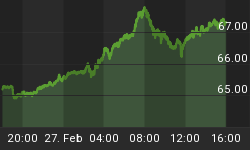Although a recent U.S. government survey outlines the rich potential of offshore Egypt's natural gas reserves, the North African country is yet to offer attractive investment terms to companies carrying out broad exploration in deep waters, according to energy analyst Samuel Ciszuk.
"It's a completely new technology field," argued Ciszuk, a senior energy analyst for the Middle East and North Africa at IHS Global Insight in London. "It requires a bit of a new approach."
The U.S. Geological Survey, part of the Interior Department, found that the Nile Delta Basin Province, which encompasses about 250,000 square kilometers of the eastern Mediterranean area, boasts an estimated 223 trillion cubic feet of "undiscovered, technically recoverable natural gas." These kinds of reservoirs may serve as a "bridging fuel" as the world moves toward a "carbon-constrained global economy," the study indicates.
When it comes to gas, Egypt, a member of the Gas Exporting Countries Forum, has become an increasingly deepwater play in the Mediterranean and an exporter on par with Europe, Ciszuk told OilPrice.com. The country's efforts include liquefied natural gas projects and a pipeline extending toward Jordan and Syria, he said, adding that it will eventually include Turkey and potentially Europe.
Oil production is still significant for Egypt -- the survey estimated about 1.7 billion barrels of undiscovered oil -- but "exports are almost non-existent," Ciszuk added.
Siphoning out the energy windfall that the U.S. government appraised last month remains questionable, since assessing the geological potential of the area and actually drilling are "two very different things," he acknowledged.
Although the Egyptian government can recover these resources "to some extent," he said, there are financial risks linked to deepwater drilling and also dangers similar to "what happened in the Gulf of Mexico" when an oil rig exploded in April.
Egypt's financial terms -- while "very competitive" -- have been geared toward prospecting and production in shallow waters, a model that has been "slowing down development" over the last few years in other areas, he said.
Under the Egyptian model, one-third of gas reserves are destined for domestic markets, one-third can be exported and the balance must be kept for future generations, he explained. How much the government actually pays firms for the third of production going to the local market is "very, very crucial," Ciszuk said. These companies "need to get a decent price for the remaining third in order not to spoil the projects, especially when we talk about deepwater and the high cost involved."
The main players in the offshore Mediterranean arena include British Gas, BP, ENI and RWE, Ciszuk noted.
Cairo, which has realized the downside of its traditional approach, is in the midst of negotiating better compensation for companies to make deepwater production viable, he said. The Egyptian government offered BP improved terms for offshore development in the Nile Delta, wrote Ciszuk last month in a research note. He described the move as a "groundbreaking deal" with Egypt, giving it full production rights in its Mediterranean North Alexandria block and guaranteeing it a "significantly higher oil-indexed price for the gas produced for the government."
For several years, Egypt has enacted new laws to attract international, regional and domestic investments, according to its government Website. The government has allowed flexibility in choosing the investment field, in transferring projects, and in product price and profits determination, the site states. The government notes that it has also nixed capital limits.
After the survey was issued last month, Refat Khafagy, the Egyptian oil ministry undersecretary, said the estimated natural gas can be exploited using advanced technologies, according to media reports. He did not offer details.
While the study's lead author, geologist Mark Kirschbaum, does not know the specific costs of recovering the resources, he conceded that "a lot of rigs" are needed to "push the limits of what we assessed." The survey accounts for natural gas that can be recovered technically, "no matter how deep the water, no matter how thick the salt," Kirschbaum told OilPrice.com.
"I just got an e-mail from a guy from British Gas and he wanted to know pretty much the same questions" regarding the expense associated with drawing up the gas, Kirschbaum said. The company "see[s] our number, but then they realize that a lot of that stuff isn't on their radar screen because it's not economic in their terms," he noted.
British Gas has interests in the Nile Delta, specifically in the Rosetta and West Delta Deep Marine Concessions, and has operated in Egypt for about 20 years, a company spokesman said. He declined to comment on the U.S. government study.
Kirschbaum described the basin as having a "fairly immature" production history similar in scope to the Niger Delta, which has been much more actively explored and is more of an oil and gas region. The Nile Delta was probably not developed earlier because it is mainly a gas province, he added, and it was not economical to produce gas until a few decades ago.
By Fawzia Sheikh for Oilprice.com who offer detailed analysis on Oil, alternative Energy, Commodities, Finance and Geopolitics. They also provide free Geopolitical intelligence to help investors gain a greater understanding of world events and the impact they have on certain regions and sectors. Visit: http://www.oilprice.com















